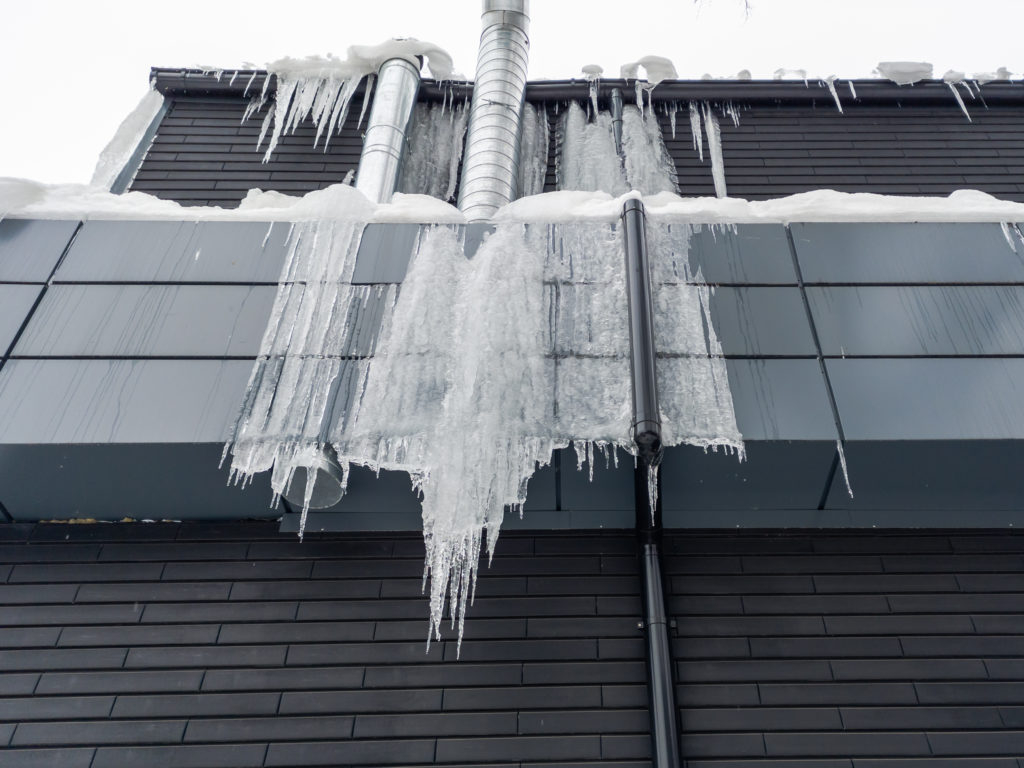
Wintertime is right upon us and there are still home and business owners that are looking for the best options for insulation for the cold winter months ahead.
Whether you are looking to upgrade your building’s insulation this winter, or are already planning ahead for next year’s cold weather, you might find yourself overwhelmed by the number of options.
While there are “traditional” materials available such as fiberglass or cellulose that most home and business owners know more about, spray foam insulation is rapidly growing in the industry.
This is due to the fact that those who use it have seen incredible benefits come from the spray foam application, especially during the cold winter days.
Here are four winter benefits of spray foam insulation you can look forward to.
Adds Structural Strength
There are two different types of spray foam that are commonly used: open cell and closed cell spray foams. While both are good spray foam options, they possess different properties that may influence the amount of structural strength they add to a structure. Open cell foam does not add structural integrity, but closed cell does!
Let’s take a closer look at the two spray foam options.
Open cell foam
Open cell spray foam is made up of broken cells that are not encapsulated.
Open cell spray foam is four to five times less dense than closed cell foam. This makes open cell foam softer and more flexible, often described as being similar to angel food cake in texture. Open cell is an air barrier when applied in greater than 3.5” thickness. However, it is not a vapor barrier.
One of the biggest benefits of open cell foam is that it expands so much after it has been applied, meaning it can insulate hard-to-reach spaces in a home. These types of areas can be a little more tricky with closed-cell foam.
Closed cell foam
Closed cell foam, as the name suggests, features cells that are completely closed. The nature of closed-cell foam also causes it to become more rigid and dense when it hardens. The combination of its density and rigidness helps create a unique insulation that increases the structural integrity of the home or buildings it’s applied to while also forming a Class II Vapor Barrier and Air Barrier if applied in the correct thicknesses.
The high-density and superior rigidity of closed-cell spray foam insulation add extra reinforcement and stability to exterior walls and roof decks cavities where it is applied. This assists the resistance to compression from the structural load and the resulting stresses that it creates.
In fact, research conducted by the National Association of Home Builders (NAHB) has shown walls installed with closed cell spray foam have a racking strength up to 300% greater than walls without it.
The increased strength means a stronger wind resistance for the roof, something that can come in handy not only with extreme winter storms but in coastal areas where hurricanes can be a yearly event.
Prevent Mold Growth
We all know that moisture is one of the biggest problems for many homeowners. Closed cell spray foam insulation is a great moisture barrier.
Moisture can not only cause structural issues due to rotting wood, you may experience leaks in the roof, ceiling, even in areas you can’t see such as inside walls.
Water can destroy homes and commercial buildings if these issues aren’t addressed quickly.

Further, a lack of proper insulation can create ice dams and icicles on the roof. If heat escapes through the roof, it melts snow which runs down the roof and refreezes at the bottom. This poses a safety risk, as large chunks of falling ice can cause serious injury or death. Plus, ice dams create pooled-up meltwater which can seep in through cracks in the roof and create extensive water damage. It should be noted that properly insulated buildings won’t form icicles or ice dams.
A helpful and early warning sign that shows a building is losing heat through the roof is the formation of frost lines. These will help warn of improper insulation before heavy snowfall comes, giving building owners precious time to get the issue fixed.
Energy-Efficient
Did you know that as much as 40% of a building’s energy is lost due to air infiltration? Spray foam seals gaps, holes, and air leaks which are easily preventable problems that can make energy bills unnecessarily high and let valuable resources go to waste.
Spray foam offers a solution: it weatherizes your home acting as both insulation and an air sealant, or air barrier, closing those nooks and crannies that let air escape and increase monthly energy bills.
The U.S. The Environmental Protection Agency’s (EPA) Energy Star program estimates that by adding insulation and sealing air leaks, you could save up to 20% on your monthly energy bills.
The U.S. The Department of Energy estimates that 56% of the energy used in a home goes to heating and cooling. Your home’s heating, ventilating, and air conditioning (HVAC) system has a big effect on your utility bills and your energy consumption.
Maintaining an optimal HVAC system can make your home more energy-efficient. Spray foam insulation can help reduce the workload on your HVAC system thanks to its high R-value and effectiveness.
In fact, with spray foam, HVAC sizing can be reduced by as much as 35% without the loss of efficiency and comfort.
Protect Your Plumbing
Frozen pipes are an inconvenience and can cause serious damage. When the temperature of a water pipe drops below freezing, water volume in the pipe can expand up to 10% and cause pipes to burst.
Spray foam insulation is a great product to protect pipes from cold temperatures. Here are three ways spray foam insulation can help prevent freezing pipes:
- Add foam insulation to walls that are located near water pipes. In open cavities, spray foam insulation can be added prior to closing the walls. In existing walls, injection foam can be added to exterior walls.
- Insulate your attic or crawl space with spray foam insulation. Spray foam helps protect water pipes from cold temperatures. It is also water-resistant which makes it ideal for use near water pipes.
- Insulate and air seal basement rim joists with spray foam insulation. This helps keep cold outside air from infiltrating the basement and away from pipes. Insulating and air sealing your basement rim joists can also help the main floor of your home retain a comfortable temperature.
The Accufoam® Difference
After 2.5 years of R&D and thousands of batches tested in real-world environments and lab conditions, Accufoam® has achieved a precision spray foam insulation solution that can give you the confidence that you’ll achieve:
- Consistent results
- Consistent density
- Consistent R-value
… and most importantly, consistent protection for each and every job.
Plus, our dedicated customer service team will ensure you have a knowledgeable partner every step of the way!
Whether you’re a homeowner looking for a great insulation solution, a contractor wanting to deliver quality results for your clients, or a product distributor looking for a dependable partner, Accufoam® will deliver.
To learn more about the magic of Accufoam®, call (205) 440-4996 or fill out our online contact form.
Continue reading these other great articles:
Spray Foam Application Temperature: A Guide For Beginners


